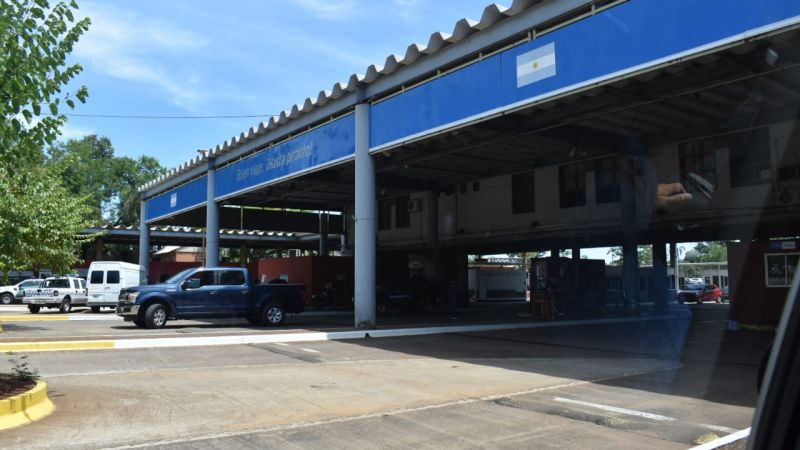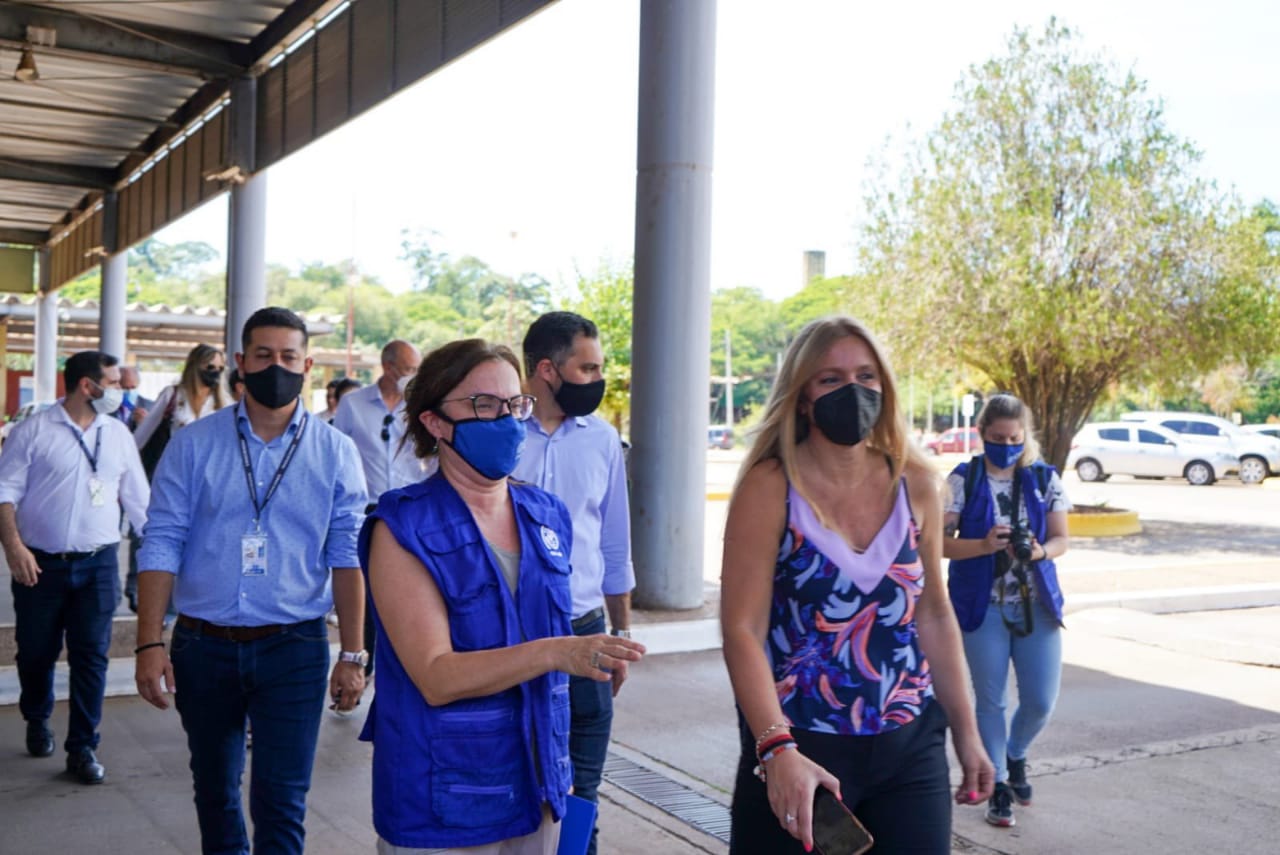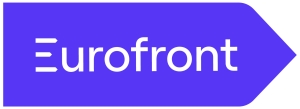News
Wednesday 24 November saw a technical visit to the city of Puerto Iguazú, the Argentinian border at the “Triple Frontier”, a region that also includes the cities of Foz de Iguazú in Brazil and Ciudad del Este in Paraguay. The visit was carried out as part of the framework of a technical assessment and training initiative within the EUROFRONT programme. Wednesday 24 November saw a technical visit to the city of Puerto Iguazú, the Argentinian border at the “Triple Frontier”, a region that also includes the cities of Foz de Iguazú in Brazil and Ciudad del Este in Paraguay. The visit was carried out as part of the framework of a technical assessment and training initiative within the EUROFRONT programme.

It was attended by Florencia Carignano, National Director of Migration of the Argentinian Government, who highlighted the role played by international cooperation in strengthening prevention and action against human trafficking and migrant smuggling: “Trafficking is a crime that needs considerable training for inspectors so that they can recognise the victims from the smallest of details and. above all, to ensure that they are alert and aware that a simple gesture can save a life. International cooperation is very important here because it helps us learn and understand how this crime varies across borders and how it impacts our country.”
The mission was also made up of Laura Estomba, Coordinator of EUROFRONT’s Axis for Combating Human Trafficking and the Smuggling of Migrants (Component II), Miguel Cascajo, an expert for Component I and Dionisio Jiménez Sanguino, a specialist for Component I (Comprehensive Border Management), who toured the Tancredo Neves International Bridge and the Puerto Iguazú – Foz de Iguazú Border centre to learn first-hand about the challenges of migration management at this border point.
Gabriela Fernández, Head of Office of IOM Argentina and part of the delegation said that “IOM is participating in these conferences within the framework of the EUROFRONT programme, which seeks to promote development and security in border areas. Component II of this programme will also focus on training activities for the early and preventive identification of cases of human trafficking, along with the Director of Migration’s Unit for the Early Detection of Human Trafficking.”

Laura Estomba, Coordinator of Component II of the EUROFRONT programme, said “we are finalising our assessment of human trafficking in the Triple Border region, which will take into account the local scenario in relation to this crime. The regulatory framework is also being analysed, as are the advances made and the tri-national agreement. From all this, findings and recommendations are identified and proposed to be taken into account in the programme’s work plan.”
The activity of the action to promote comprehensive border management “focused on an assessment of the border crossing in order to identify areas in which the EUROFRONT programme could work together with the Argentinian authorities”, in the words of Miguel Cascajo. This technical assistance was carried out from 24 to 28 November. Additionally, until 3 December, a training workshop was held for the exchange of experiences under the direction of Dionisio Jiménez, with a second assistance phase focusing on writing a guide to good practices in this area.
Line of action
Social media news

